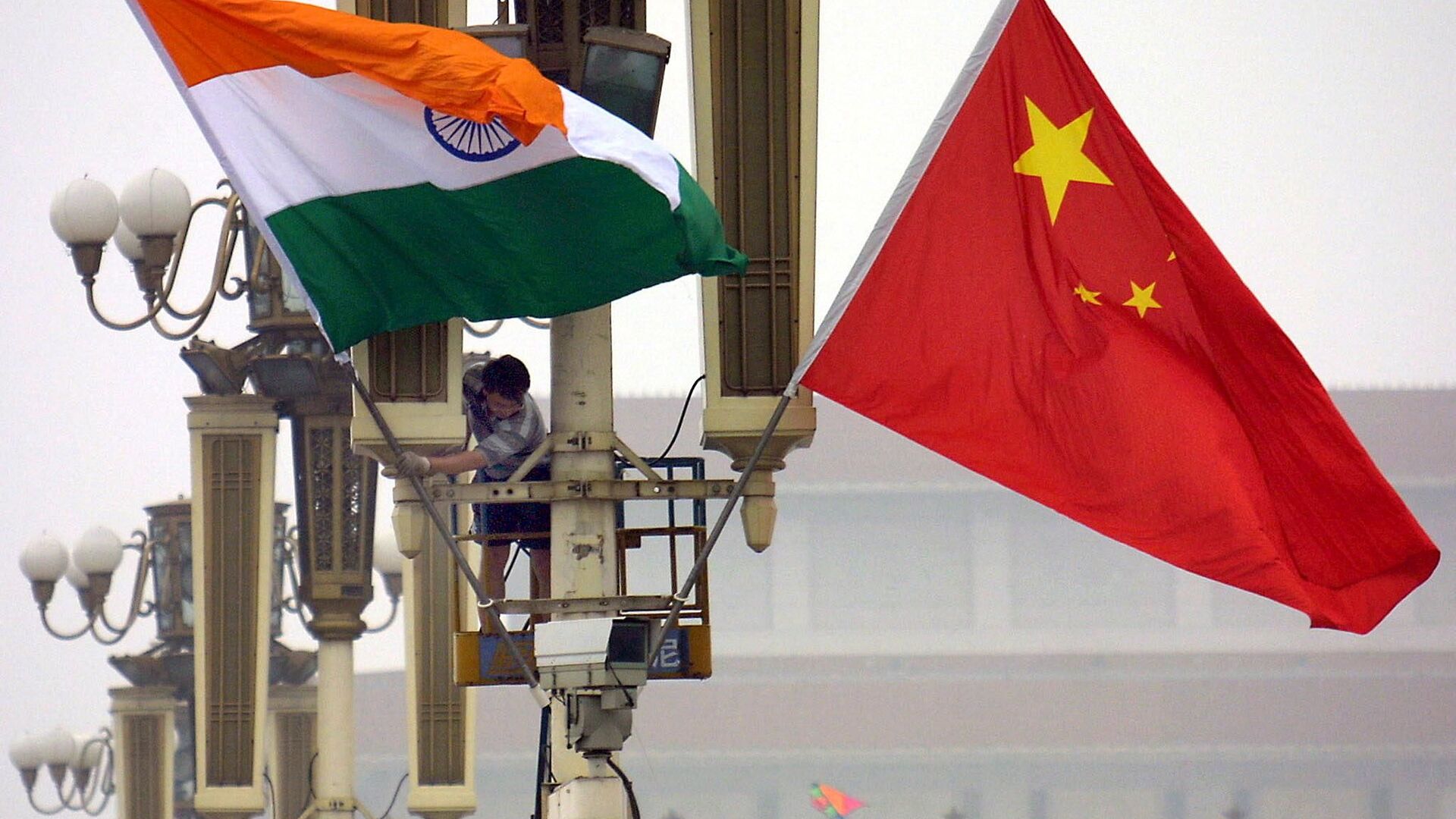https://sputnikglobe.com/20220830/india-china-differences-undermine-the-rise-of-asia-foreign-minister-s-jaishankar-says-1100146074.html
India-China Differences Undermine the 'Rise of Asia', Foreign Minister S. Jaishankar Says
India-China Differences Undermine the 'Rise of Asia', Foreign Minister S. Jaishankar Says
Sputnik International
India and China, Asia’s most populous nations and also among the continent’s biggest economies, have been engaged in a deadly border standoff in the eastern... 30.08.2022, Sputnik International
2022-08-30T06:10+0000
2022-08-30T06:10+0000
2022-08-30T06:10+0000
india
subrahmanyam jaishankar
china
ladakh standoff
quadrilateral security dialogue (quad)
https://cdn1.img.sputnikglobe.com/img/07e5/07/0e/1083385097_0:131:2048:1283_1920x0_80_0_0_0158506aeff5d4896a0d41d7630a4aab.jpg
Indian Foreign Minister S.Jaishankar has said that Dehli's ongoing differences between Beijing and New Delhi remain a “strong concern” that would prevent the “rise of Asia” in the global geopolitics.Delivering the keynote address at the launch of Asia Society Policy Institute in New Delhi on Monday evening, Jaishankar further reiterated that the state of the Sino-India border will “determine the state of the relationship”.Jaishankar stated that even though the countries on the Asian continent were “rising” economically, major differences remained between the major countries. The Foreign Minister said that the “fissures” within Asia will have to be managed through compliance with common laws, norms and rules.“For a start, sovereignty and territorial integrity will have to be respected. Initiatives that impact the region must be consultative, not unilateral. Connectivity, in particular, should be transparent, viable and market-based,” he noted.Jaishankar also argued in his keynote address that the Quad grouping comprising Australia, India, Japan and the US should be viewed as a “collaborative endeavour”. He said that unlike other regions, Asia lacked a regional “architecture” of any kind which is why groupings such as Quad are important.The Indian Foreign Minister also slammed critics of Quad, saying that they have a “vested interest in keeping the region less cohesive and interactive”.Beijing has been critical of the Quad. It has argued that Washington has been trying to conceive of an “Asian NATO” through its involvement in the four-nation informal grouping.For its part, Beijing has strongly opposed US’ involvement in the Indo-Pacific region. The ‘Global Security Initiative’ launched by Chinese President Xi Jinping in April has “opposed dividing” the Asia-Pacific region with Washington’s Indo-Pacific Strategy, also criticising the interference of external powers in the region.
china
ladakh standoff
Sputnik International
feedback@sputniknews.com
+74956456601
MIA „Rossiya Segodnya“
2022
News
en_EN
Sputnik International
feedback@sputniknews.com
+74956456601
MIA „Rossiya Segodnya“
Sputnik International
feedback@sputniknews.com
+74956456601
MIA „Rossiya Segodnya“
india, subrahmanyam jaishankar, china, ladakh standoff, quadrilateral security dialogue (quad)
india, subrahmanyam jaishankar, china, ladakh standoff, quadrilateral security dialogue (quad)
India-China Differences Undermine the 'Rise of Asia', Foreign Minister S. Jaishankar Says
India and China, Asia’s most populous nations and also among the continent’s biggest economies, have been engaged in a deadly border standoff in the eastern Ladakh region since May 2020. The dispute remains unresolved in spite of 16 rounds of military commander-level meetings and other high-level diplomatic engagements between the two nations.
Indian Foreign Minister S.Jaishankar has said that Dehli's ongoing differences between Beijing and New Delhi remain a “strong concern” that would prevent the “rise of Asia” in the global geopolitics.
Delivering the keynote address at the launch of Asia Society Policy Institute in New Delhi on Monday evening, Jaishankar further reiterated that the
state of the Sino-India border will “determine the state of the relationship”.
"It is said that the pre-requisite for an Asian Century is an India and China coming together. Conversely, their inability to do so will undermine it," the Indian Foreign Minister remarked.
Jaishankar stated that even though the countries on the Asian continent were “rising” economically, major differences remained between the major countries.
“That is why rising but divided is such a strong concern,” he noted.
The Foreign Minister said that the “fissures” within Asia will have to be managed through compliance with common laws, norms and rules.
“For a start, sovereignty and territorial integrity will have to be respected. Initiatives that impact the region must be consultative, not unilateral. Connectivity, in particular, should be transparent, viable and market-based,” he noted.
Jaishankar also argued in his keynote address that the
Quad grouping comprising Australia, India, Japan and the US should be viewed as a “collaborative endeavour”.
He said that unlike other regions, Asia lacked a regional “architecture” of any kind which is why groupings such as Quad are important.
The Indian Foreign Minister also slammed critics of Quad, saying that they have a “vested interest in keeping the region less cohesive and interactive”.
Jaishankar further backed American involvement in the affairs of Asia, describing Washington as a “resident power” with “legitimate interests” in the region.
Beijing has been critical of the Quad. It has argued that Washington has been trying to conceive of an “Asian NATO” through its involvement in the four-nation informal grouping.
For its part, Beijing has strongly opposed US’ involvement in the Indo-Pacific region.
The
‘Global Security Initiative’ launched by Chinese President Xi Jinping in April has “opposed dividing” the Asia-Pacific region with Washington’s Indo-Pacific Strategy, also criticising the interference of external powers in the region.

